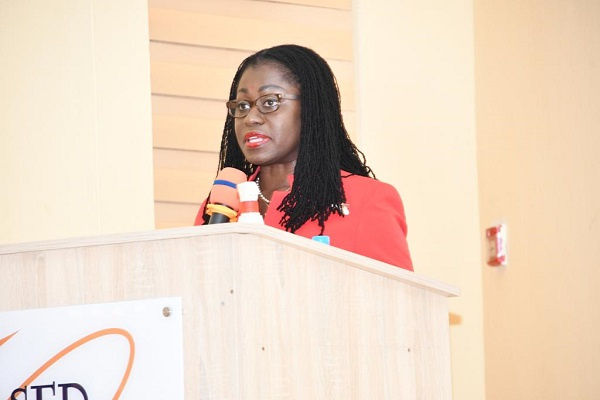The Second Deputy Governor of the Bank of Ghana, Elsie Addo Awadzi, has disclosed that the Central Bank has recently implemented a new online reporting and analytics supervisory tool (ORASS).
According to her, the tool forms part of efforts to harmonise data collection from various licensed institutions, and improve data analytics and reporting.
Speaking at the ISSER-World Bank public engagement on 2021 Ghana Findex Report, Mrs Addo Awadzi said the ORASS will further unify the licensing of databases with prudential reporting databases to help achieve more comprehensive and effective supervision of licensed institutions.
“ORASS enables our regulated institutions to submit their prudential returns to us periodically on a disaggregated basis to help us monitor access to finance on a more granular basis including by gender and age dynamics of their customer base and product and service offerings,” she explained.
The second deputy Governor continued, “Overall, this new tool is helping to address what used to be critical supply-side data constraints and has enhanced the Bank’s capacity to produce quality industry reports and dashboards for policy decisions”.
Mrs Addo Awadzi added that the tool can also extract actionable reports from extensive volume of prudential and regulatory transactional data as well as provide a single decision support system in replacement of the disparate database systems that exists within the banking and payment systems.
Touching on efforts to improve the quality and availability of data to support Ghana’s financial inclusion agenda, the Second Deputy BoG governor said that a unified data architecture is required to help connect existing data bases for effective and consistent policy formulation and regulation.
She also called for the design of appropriate financial products and services to meet the needs of all economic actors in Ghana.
“The roll-out of the biometric Ghana Card, which is now designated as the single identity card for purposes of financial transactions, holds promise for promoting unified data architecture for monitoring financial inclusion.
“The exclusive use of the Ghana card for financial transactions will help track users across the whole spectrum of financial services, and will facilitate both demand and supply-side data collection and analysis to measure progress in access to finance,” she noted.
Mrs Elsie Addo Awadzi further pointed out that the Central Bank will continue to support and implement strategies geared toward an inclusive, sustainable, and resilient financial sector that meets the needs of all.

